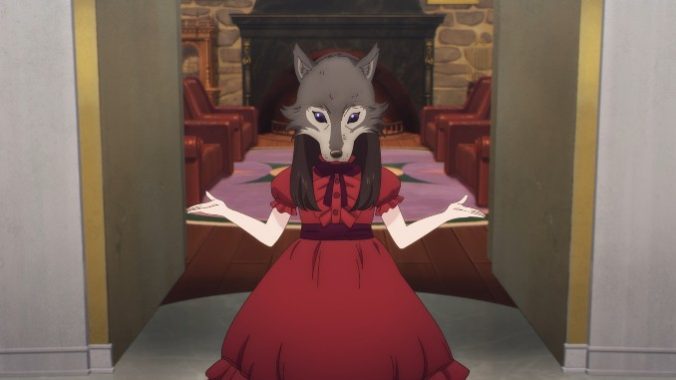Lonely Castle in the Mirror Is an Unflattering Reflection of Its Novel

Lonely Castle in the Mirror inherits all its best qualities from its source material. Based on Mizuki Tsujimura’s 2017 novel of the same name, the latest film from director Keiichi Hara seldom matches the narrative ambitions of its text. But while it’s not a follow-up feature of the same caliber as Hara’s 2015 Miss Hokusai (also distributed by GKIDS), which helped cement his reputation among international audiences, what Lonely Castle in the Mirror attempts to do makes it worth a critical look.
The premise is straightforward enough: Seven junior-high children can’t go to school because of violent bullying. With various reasons behind the trouble at school probing at a larger social issue in Japan, the children who spend much of their days stuck at home are spirited away through their bedroom mirror to a castle straight out of a fairy tale. The rules of this story are introduced by a mysterious little girl wearing a wolf mask: There is a key hidden somewhere in the castle that can grant a single wish. The kids will have nearly a year to search for it but are only allowed in between 9 AM and 5 PM. If the key is found and a wish granted, they will forget their memories of the place and each other.
It proceeds predictably from there, and you’ll likely piece together the big twists before the characters do. As you might expect, the group spends more time finding strength in each other than a single wish that could fix all their problems back home. It’s not a mystery story, however, and the castle is nothing more than a setting. It’s a shame, because Lonely Castle in the Mirror needs something in the face of all the expected constraints that go along with adapting a novel. Without the affordances of prose, which let the original text explore the thoughts, memories and feelings of its protagonist, Lonely Castle in the Mirror ends up feeling like an abridged version of the book, already translated into English in 2021 by Philip Gabriel.
As a thematic follow-up to Colorful’s depressed teens and Miss Hokusai’s feminist storytelling, Hara and his returning collaborators make a promising team for this adaptation. Produced at Sony-owned A-1 Pictures (Sword Art Online, Kaguya-Sama: Love Is War), the animation is competent, but its art direction is thoroughly uninteresting. The sets and backgrounds, while not always imaginative, are gorgeous. This seems in part due to contributions by AKIRA animation director Takashi Nakamura, who is thanked by Hara as the final credit of the film. Contributions from other past collaborators, including Miss Hokusai screenwriter Miho Maruo and composer Harumi Fuuki, also make the movie a well-executed adaptation. But again, Lonely Castle in the Mirror offers nothing as a movie that the novel doesn’t already deliver.
 Keep scrolling for more great stories.
Keep scrolling for more great stories.
